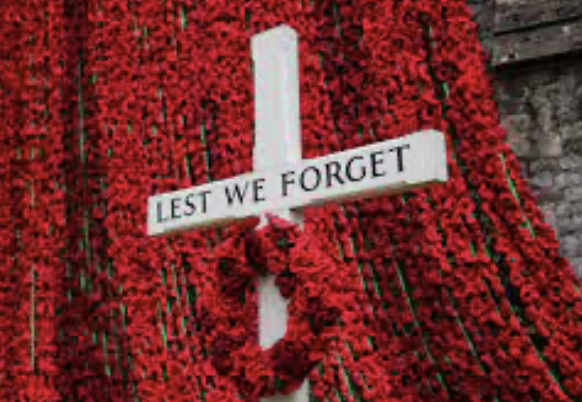

It’s been a strange weekend. Some might have deemed it Remembrance Weekend, as both Armistice day and Remembrance Sunday were over the one weekend. Should the boundaries blur?
Has our attention changed this “Remembrance Weekend’,
or have we just moved on?
According to the Merriam Webster dictionary “Armistice descends from Latin sistere, meaning “to come to a stand” or “to cause to stand or stop,” combined with arma, meaning “weapons.” An armistice, therefore, is literally a cessation of arms.” Perhaps a march for peace was appropriate after all?
Services on the Sunday may well have included the traditional ‘lest we forget’.
But do we forget; have we already?
Each year we might be encouraged to buy a poppy, in particular a red poppy, this year an ecological plastic-free poppy, and wear it with pride for the fallen. You might have a few old poppy’s in a drawer or dish, which you could find and put on each and every year. Doe sit matter whether we bought new ones or not? But then again, on the Monday after Remembrance Day, have we already forgotten what it was all about?
Lest We Forget

Some might question has there been any time, since say the Second World War, when we haven’t been at war? The legend of Berwick-upon-Tweed being at war with Russia still is exactly that: one of legend. One issue is how we might define peace, and therefore, what doesn’t agree with that, must mean war. Or that war means any form of fighting, including civil war or insurgency, or that war must mean more than 1000 people killed? Even the end of the Second World War is a little vague, as the Japanese did not sign the peace treaty until 1951. A researcher has suggested these ‘wars’ (right) which seamlessly cover the period 1942-present if we consider Syria/Iraq/Kuwait/Ukraine & Russia, and now Israel/Hamas. In 2003, the NY Times claimed that: “Of the past 3,400 years, humans have been entirely at peace for 268 of them, or just 8 percent of recorded history.”
And?
Regardless whether the statements could be scientifically verified, we seem to be able to forget and carry on: contrary to what we always say on Remembrance. That day seems to be a solemn ritual, a tradition we have always done. Often, we might do this so often that we really forget what it might mean.

“What is war?” was one question I asked earlier. How does it really feel to be in a war? That feeling of being a pawn in a large scale machine, doing your job, to protect the freedoms of those back at home. From my perspective, I very much realised that I was a mere pawn in the grand scheme of the overall tactics required for the ‘success’ of the war. That ‘success criteria’ I was not actually aware of: as it was held ‘on high’, devised by our politicians. I recall military operations which we might seriously question exactly what we were doing, how would our role actually contribute towards the ‘end result’? But our role wasn’t to question but to do.
Lest We Forget
But now, the day after Remembrance Day, is that our raison d’être? To merely listen to what we are expected to do and not question why? Should we arrive each and every year with our poppy, stand for 2 minutes to remember the fallen, and then continue with our daily lives?
Surely it needs to change?
If Armistice means ‘cessation of arms‘ when might this change our own perspective from agreeing with our politicians that more lethal weaponry is required, that the nuclear deterrent is absolutely necessary, and that a ceasefire is not appropriate for a sovereign nation. A reading from yesterday came from the Beatitudes (Matthew 5:1-12) which includes “Blessed are the peacemakers, for they will be called the sons of God”.
Which was deemed a success: the Good Friday Agreement or the decades of Troubles in Northern Ireland? If we were in Israel or Gaza, Kiev or the four oblasts held by Russia but within the Ukrainian boundary, what might we truly seek? Has our attention changed this “Remembrance Weekend’, or have we just moved on?
Do we honestly seek peace each and every
yearday?
I found the dialogue interesting and I enjoyed it